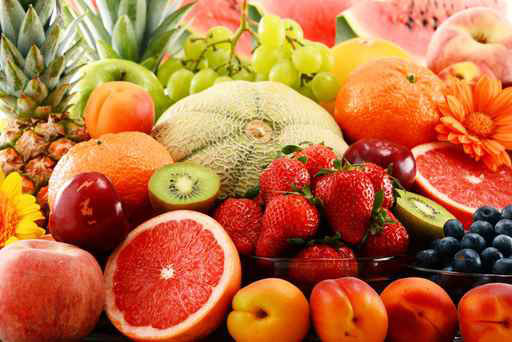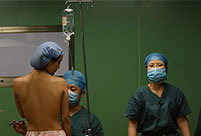


Experts say whole fruit is the healthiest choice for most people,
while juice offers both taste and convenience. Provided to China Daily
Juicing seems to be the new fad, and many people believe juice will help cleanse their bodies, boost immunity and prevent diseases.
But is juice really as good as its promise?
"If you are not a fruit lover, or if you cannot eat fruit under some circumstances, juice is a good alternative to ensure you obtain nutrients fruit can provide," says Ma Guansheng, a professor with the School of Public Health, Peking University.
Fruit contains myriad vitamins, minerals, plant chemicals, and many other nutrients that are beneficial and sometimes even essential to people's health, Ma says, adding that vegetables cannot replace fruit in the human diet, because fruit and vegetables contain different nutrient spectrums, though they overlap some.
Eating fruit offers more nutrition and less-concentrated sugar, but it is better to consume juice than not to consume fruit at all, Ma says, especially when people consume a juice mix, which offers a larger group of nutrients.
Ruan Guangfeng, an established popular-science writer with Guokr.com, agrees.
For people who cannot eat whole fruit, or just do not eat fruit, such as old people with weak teeth, those undergoing cancer or digestion treatment, women suffering strong pregnancy sickness, and children, fresh juices are strongly suggested as part of their daily diet, Ruan says. But avoid bottled juice drinks that have too much sugar and water rather than fruit nutrients.
Research conducted between 2003 to 2006 in the United States showed that people who have fresh juice every day tend to obtain more nutrients, such as vitamins and trace elements, than those who do not, Ruan says.
However, most of the healthy fiber is lost during most juicing, which is one reason why juice cannot replace full fruit, the experts say.
Another issue: Most common juicers use a metal blade that spins fast against a mesh filter to extract juice from fruit, which will generate heat, destroy plant enzymes in fruit, increase oxidization and result in less nutrients, Ruan says.
Cold-press juicers, which are relatively new, separate juice by crushing and pressing fruit, which can avoid the unfavorable heating effect and yield more juice than bladed juicers, he says, adding that the cold press produces juice that is less tannic and tastes better.
Both experts insist whole fruit is the healthiest choice for most people, while juice offers both taste and convenience.
 No cleavage allowed at China’s largest gaming expo this year
No cleavage allowed at China’s largest gaming expo this year Photo story: A model’s breast implant surgery
Photo story: A model’s breast implant surgery Student proposes during graduation ceremony
Student proposes during graduation ceremony Kiss contest held in Nanning, SW China
Kiss contest held in Nanning, SW China China-made special vehicles in exhibition
China-made special vehicles in exhibition Bikini beauties lifeguards in river rafting place
Bikini beauties lifeguards in river rafting place Yunnan-Myanmar Road: The past and present
Yunnan-Myanmar Road: The past and present Photos of beautiful policewoman become online hit
Photos of beautiful policewoman become online hit An unbreakable army
An unbreakable army The last grave-keeper
The last grave-keeper Amnesty in the 21st century
Amnesty in the 21st century Loggers’ release not victory of diplomacy
Loggers’ release not victory of diplomacy Guo Boxiong family tree reveals deep military roots
Guo Boxiong family tree reveals deep military rootsDay|Week